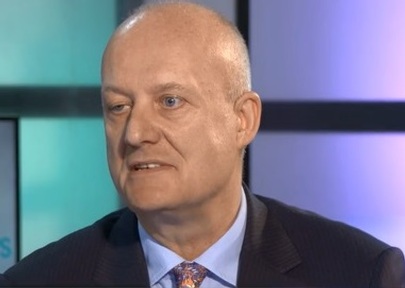PM candidate Matt Hancock 'is in complete denial' says social care chief
Health secretary Matt Hancock wants to be Britain’s next Prime Minister, with the "determination and vision" to deliver Brexit, but care home chief Martin Green says his failure to deliver a social care green paper has only fuelled a growing care crisis.

Hancock: ‘I've got the determination and the vision’
Matt Hancock said: “I’ve got the determination and the vision to take Britain through Brexit. I’ve been getting on and delivering within the health service”.
Mr Hancock has been Secretary of State for Health and Social Care since July 2018, but a green paper for social care designed to offer long-term care funding proposals has been repeatedly delayed since 2017.
As he sets his sights on becoming Britain’s next PM and gaining cross-party approval for Brexit, Matt Hancock confessed that when it came to delivering social care's green paper: “I haven’t been able to get cross-government agreement."
The lack of political action jars with Martin Green, the chief executive of Care England, who is advising the care homes he represents to “forget about government”.
Martin Green told carehome.co.uk: “Matt Hancock is in complete denial about what is going on. About the complexity of the conditions people have.
“The government need to realise that actually one of the biggest challenges is supporting people who have got long-term conditions and yet what they’ve got is a 1948 model of health where they put all the money in the health service and ignore social care.”
Care homes must ‘carve' own solutions like nurseries and Costa coffee franchises
Martin Green described the care home market as “under great pressure” partly “because there is no long-term funding strategy from government” in the form of a green paper.
“It’s really interesting that they allocated straight off the bat an extra £50 billion to the NHS.
"Why didn’t they put £10 billion of that into social care? That would have really made a big difference to us.

“There are so many times when the government give money to local authorities and it doesn’t reach the frontline. We saw it with the [social care] precept. We saw it with some of the extra funding that came into social care. Every pound they invest needs to go into direct services rather than into local authorities.”
Faced with the current ‘political inertia’ in government, Martin Green said: ”I’ve been telling care homes to forget government, to carve their own solutions to do what they can to extricate themselves from government funding. To try to diversify their offering so that they can be sustainable in the future."
He is advising care homes to think about how they would provide support services in communities, whether they could fund them through direct payments.
He believes they could develop night or day services and consider, for example developing nurseries on site, “so they could get early years budgets into their offering”. As well as extra income, this can provide a good childcare resource for care staff.
The Care England chief executive is also urging care homes to think about introducing services, like a Costa Coffee franchise, in the building to get rental income.
A good life for £3.50 an hour?
Mr Green said Care Quality Commission-rated ‘good’ and ‘outstanding’ care homes will not last without proper long-term funding.
“The vast majority of [outstanding] care homes have got no residents paid for by the government.
"It’s becoming an increasingly two-tier system, where some services that focus on private pay are developing, investing in care and those that are totally reliant on government funding are finding it really difficult to manage.”
Adult social care wages are low and below equivalent salaries in the NHS, according to the Health Foundation.
Martin Green said: “Care homes have been saying to me that it’s really difficult, for example, to deliver high quality care when you are being paid by some local authorities about £3.50 an hour.
“How do you train your staff, give people a good quality life, when they are very frail and vulnerable and they’re only worth in effect £3.50 an hour?”
’What time will you go to the toilet tomorrow?’

Mr Hancock recently told the House of Lords Economic Affairs Committee about a need to shift more people away from care homes to home care.
In response, Martin Green said: “If he’s seen somebody with end-stage dementia, a heart condition, diabetes or a range of other health care issues, does he think that those people can be managed in their own home?
“Well they could be if they had two people 24 hours round the clock, but he’s not prepared to allocate the money.
“He said it in his answer ‘It’s cheaper’. That’s all he’s interested in. How cheap it is. Not how good it is.
“One lady said to me, 'What time will you go to the toilet tomorrow? I said to her 'What do you mean?' She said: ‘Well, I know what time I’ll go to the toilet because it’s when the care workers arrive and they plonk me on it’.
“She said ‘What time will you go to bed tomorrow night?’. I said, ‘Ooh I don’t know…about midnight.’
“She said ‘I’ll tell you what time I’ll go to bed because it’s the same every night. I go to bed at six o’clock’.”
Mr Green said: “When you’re in your own home, you’re paying for your accommodation, you’re paying for your light, heat, food and the government has to pay a minimum to keep you in a situation where actually you’re having a pretty sh*tty life.”
Referring to people’s wish to live in their own home for longer, he said “Of course they do but they actually want to be in their own homes, not ill and frail and not getting any support.
“When you’re ill and frail and not getting any support, you might prefer to be in a residential care home.“
’Nobody with the vision’
Local government spending on services has fallen by 21 per cent in real terms since 2009–10 according to a report (published 29 May) by the Institute for Fiscal Studies.
Councils also face a £51bn black hole over the next six years, reveals PwC, which conducted a review of local government spending.
England also spends less money on adult social care than Wales or Scotland, according to a report by the Health Foundation (published 29 May). England spent £310 per person on adult social care in 2016/17, compared to £445 in Scotland (43 per cent more) and £414 in Wales (33 per cent more).
The government has said it has made nearly £4 billion in funding available for councils next year. Matt Hancock also said on 29 May: “There’s now almost 10 per cent more money on social care, than there was a couple of years ago.”
As government ministers join the queue of politicians vying for the highest office in the country, Mr Green added: “Every single government has failed us and I do not see, particularly with the current quality of politicians, which are so low they are beyond belief that we’re going to see a solution any time soon.
"They stagger from crisis to crisis.
"There is no long-term planning in government anymore and there is nobody with the vision to understand how the interface with health and social care works.”
Latest News Analysis
 04-Sep-19
Extra £1.5 billion announced for social care in Chancellor's Spending Review
04-Sep-19
Extra £1.5 billion announced for social care in Chancellor's Spending Review
 02-Jul-19
Department of Health forced to rethink care homes' nursing rates after legal challenge
02-Jul-19
Department of Health forced to rethink care homes' nursing rates after legal challenge
 18-Jun-19
Overnight care workers forced to sleep in offices and told 'bring your own bedding'
18-Jun-19
Overnight care workers forced to sleep in offices and told 'bring your own bedding'
 14-Jun-19
Back in the closet: Third of care home staff have had no LGBT+ awareness training
14-Jun-19
Back in the closet: Third of care home staff have had no LGBT+ awareness training
 11-Jun-19
PM candidates on social care: Rory Stewart calls fixing care an 'unfinished revolution'
11-Jun-19
PM candidates on social care: Rory Stewart calls fixing care an 'unfinished revolution'